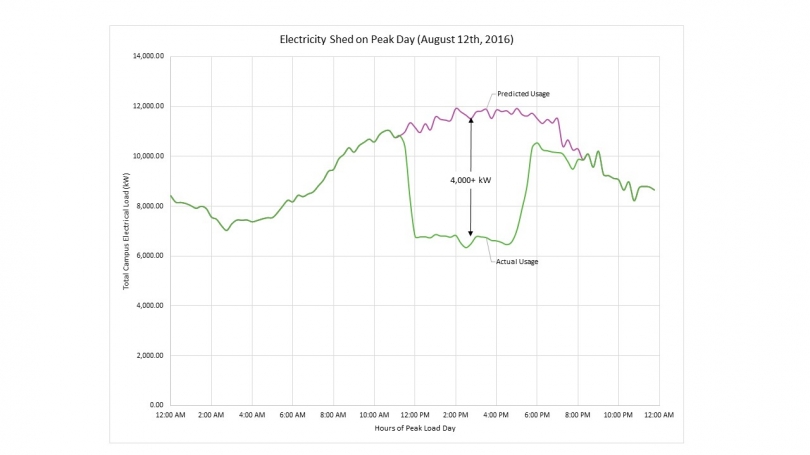
- About
- Departments
- Construction on Campus
- Service Requests
Back to Top Nav
Back to Top Nav
Did you know that Dartmouth’s efforts to shed the campus electricity load during just a few hot and humid summer days can net the College upwards of $1,000,000 in energy cost savings? For the past several years, the Facilities Operations & Management (FO&M) team, including the heating plant staff; equipment, electric and electronic shops; and other operations and engineering staff, have been working together to make this happen.
One of the ways the electricity companies charge their large customers is through an “ICAP tag”, a financial penalty based on how much of the electric grid you use during the New England electric system (ISO-NE) peak period. Over the past several years, the value of this ICAP tag has increased. Last year, because we were able to shed over 4 MW of electric load, Dartmouth’s ICAP tag credit was over $1 million.
The tricky part of this effort requires Dartmouth’s FO&M team to estimate – based upon weather and monitoring the ISO-NE website – when the peak demand day will occur. Frank Roberts, the Associate Vice President for FO&M, or Abbe Bjorklund, the Director of Engineering and Utilities, makes the call on when to invoke the following protocol actions:
Managing the campus electricity load on peak summer days is a terrific team effort amongst FO&M staff and building occupants across campus. In addition to saving the College money, by limiting the New England electrical grid system peak load, we reduce the need to build and operate expensive, fuel burning electric generating plants.